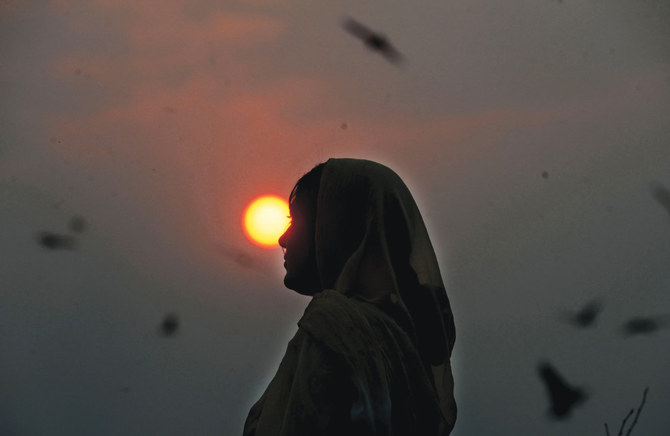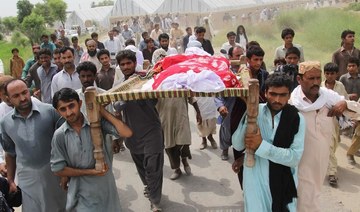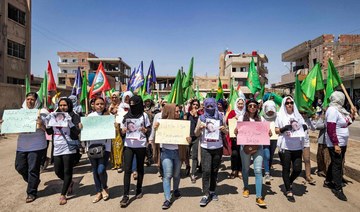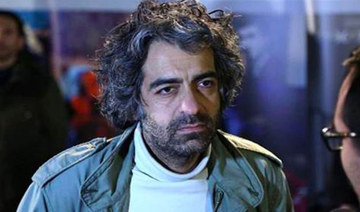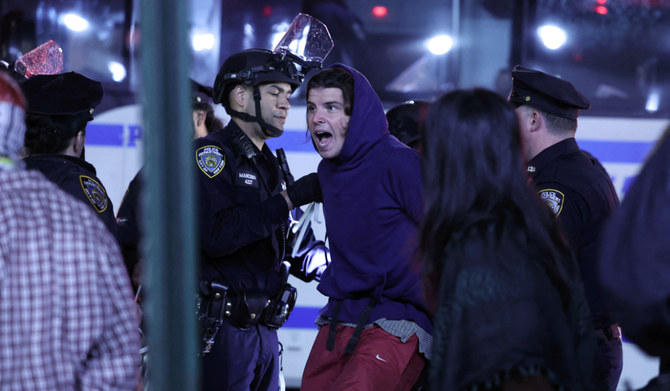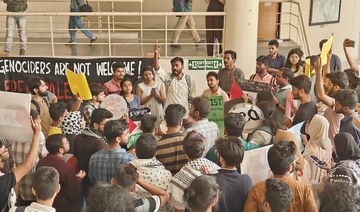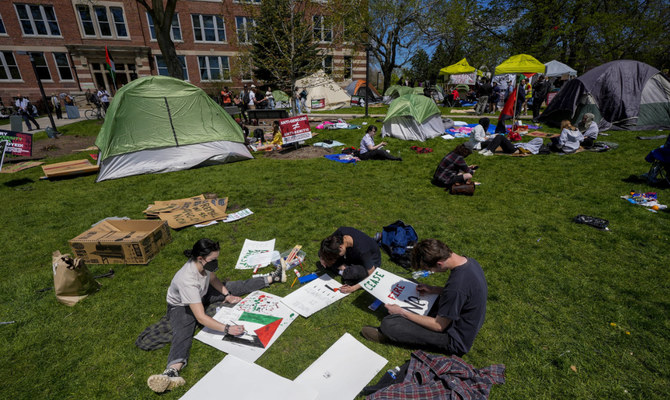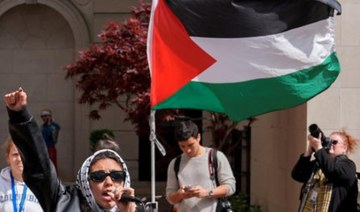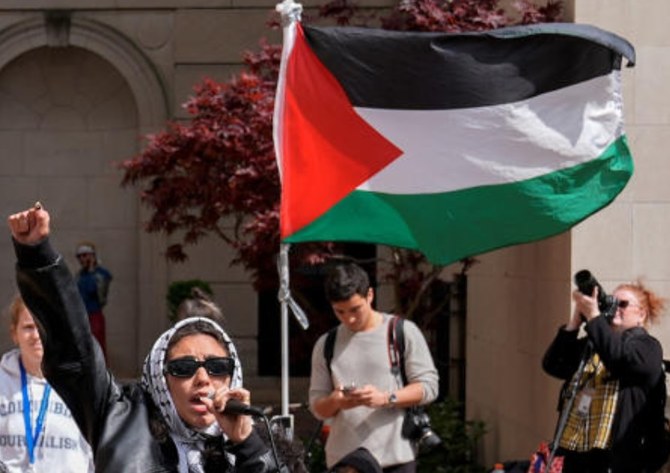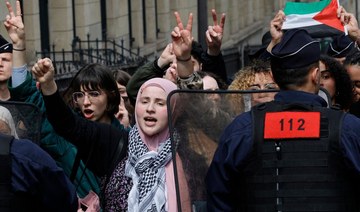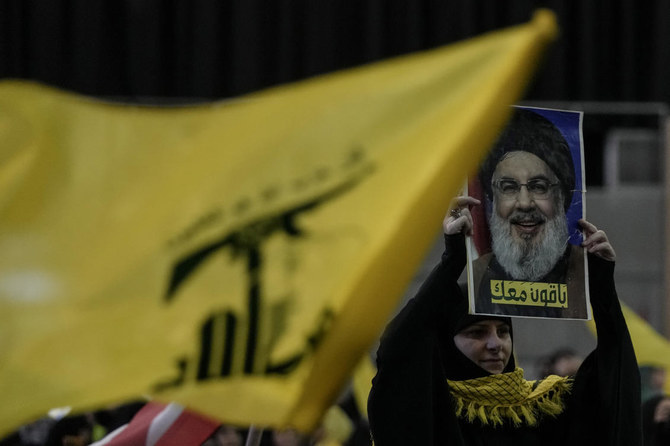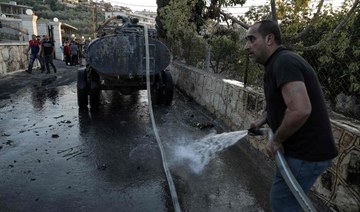SINDH, Pakistan: In Fattu Shah, a small village in Ghotki district on the border of the Pakistani provinces of Sindh and Punjab, a cemetery is reserved for women. Not just any women, locals say, but “condemned women,” or karis, killed over perceived offences to “honor.”
Hundreds of women are murdered each year in Pakistan, mostly by family members, in “honor killings” that punish women for eloping, fraternizing with men or other infractions in defiance of the conservative values that govern women’s modesty in the country.
According to the Human Rights Commission of Pakistan (HRCP), 430 cases of honor killing were reported in 2020, involving 148 male and 363 female victims. Of these cases, 215 victims, 136 of them female, belonged to the southern Sindh province.
Though the law forbids honor killings, experts say the enforcement of justice is often lax in such cases, with proceedings at times being drawn out while the accused are freed on bail and cases fade away.
Kariyon ka Qabristan, or the cemetery for condemned women, as the graveyard is called, is a testament to the continuing practice.
“The administration ... does not take any action on this lawlessness. People are afraid to talk. The women are helpless. If one is a victim, others are silent mourners.”
Zarka Shar, Pakistani women advocate
At least half a dozen villagers interviewed by Arab News — who spoke on condition of anonymity — said they knew of women who had been killed in the name of honor and buried in the graveyard in Fattu Shah.
Ali Nawaz, the 67-year-old caretaker of the four-decade-old cemetery, said there were at least 400 graves there, all of which belonged to women killed in the name of honor.
“Burials have decreased over the past few years, but women are still being killed in the name of honor,” he said.
Among the “condemned women” is Naseeran Chanesar, the aunt of 21-year-old shepherd Ilah Bux. He was 10 when his mother’s sister disappeared from her village home in 2013. For days, Bux kept asking his mother where Chanesar was, he said. “It was on the third day that a villager whispered in my ear that she had been buried in Kariyon ka Qabristan.”
Bux said he did not know which grave in the cemetery was his aunt’s: “The only person I could ask is my mother, but she also doesn’t know the exact grave.”
The caretaker said no visitors come to the graveyard even on religious holidays such as the Eid festivals or in the holy month of Ramadan, when many Muslims visit the graves of their family members and friends.
“Many graves have decayed over the years and are no longer visible,” he said, “and if someone even tries to come here, they cannot identify their loved ones.”
Another lost grave is of Gul Bano, who was killed by her elder brother in 2014, Bano’s cousin Murad Mehar said.
“On every Shab-e-Barat (major event in the Islamic calendar) when people go to graveyards to offer fateha (prayers) at the graves of their loved ones, we see Bano’s mother weeping in a corner of her house, remembering the daughter she can’t visit,” Mehar said.
Zarka Shar, an activist from Beruth, another village in Ghotki, said a graveyard had been reserved for victims of honor killings “because even after death, these ‘karis’ are not considered worthy to be buried in normal graveyards.”
“No rituals are performed for those killed and they are buried without being bathed,” she added. “This graveyard was built to spread fear.”
Shar said that even though the number of honor killings and subsequent burials in the graveyard had declined after the media had shone a spotlight on the practice in recent years, “there is still fear.”
“Even now if someone is buried, no one reveals it,” Shar said. “The administration ... does not take any action on this lawlessness. People are afraid to talk. The women are helpless. If one is a victim, others are silent mourners.”
Usman Abdullah, the deputy commissioner of Gotkhi, denied that the graveyard in question was reserved for karis.
Murtaza Wahab, a spokesperson for the Sindh government, acknowledged that incidents of honor killing occurred in the province but said he was not aware of a graveyard specifically for karis.
“I will summon a report from the local administration,” he said.
Mehnaz Rehman, the executive director of the Aurat Foundation, a women’s rights organization based in Islamabad, said the graveyard existed and that she had visited it several years ago as part of a fact-finding mission.
“There are painful stories,” she said. “We saw the grave of a mother who we were told was killed and buried there because she had dared to challenge customs.”



